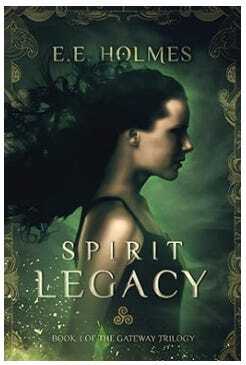T.C. Marti's Blog, page 2
March 31, 2025
Springtime cardio audiobook reads in March 2025: Children's fiction and cutting-edge nonfiction
 Yep, those are my new cover concepts!
Yep, those are my new cover concepts!Audiobook reading, or listening really, supplements my ‘old school’ method of paperback reading between March and October, when the time’s ripe for walking and running weather. Plus, when things get mundane at my day job and I’m auditing sites, I’ll often turn on the audiobooks, too.
The Libertarian Book Reviewer is a reader-supported publication. To receive new posts and support my work, consider becoming a free or paid subscriber.
If you know anything about me, it’s that I’m beyond scatterbrained. So it’s not uncommon for me to have three or four audiobooks on my Spotify playlist at any given time alongside my liked songs, Gyubin’s new EP (Flowering), and Radio Rothbard.
Anyway, for the next few (or nine) months, I wanted to share with you what I’m reading, or to be more accurate, listening to. This month, it’s been a strange mix of children’s fiction plus a pair of interesting nonfiction reads libertarians will love.
So, let’s get to it.
Across Five Aprils by Irene HuntI first stumbled upon Across Five Aprils when I was in middle school, when we read those ‘passages’ in Language Arts. This one was called The Deserter, and it featured our protagonist, Jethro Creighton, and a Union soldier he knew who deserted the army, I believe his name was Ebb.
Oh, if I get names wrong, it’s because I can be very, very hard at hearing - I get it from my great-grandmother who, per my mother, “Was deaf in one ear and couldn’t hear out the other.” But still, I get by with audio.
What I like about this book, even if I’m not 100 percent biased toward the North like I was back in school thanks to some awesome revisionist work from wonderful minds like Wanjiru Njoya and Ron Paul (an interview I my red pill moment regarding the War Between the States), is how it explains the war from the perspective of a child’s mind in 1861 to that of a young teen when the war ends in 1865.
The sheer uncertainty, especially in those times, of having siblings and a trusted mentor fighting in the war, and not knowing if they will return alive or even in the right frame of mind, made this story tick. And this was during an age when one received their news strictly through the local papers, intensifying the already agonizing wait.
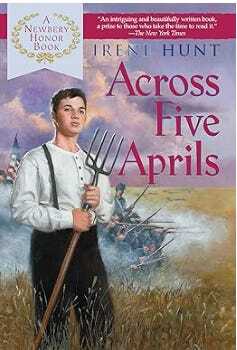 Unschooled by Kerry McDonald
Unschooled by Kerry McDonaldI wrote up a short review for this one a while back, but it’s one of those books worth dissecting a little.
Something I’ve become rather passionate about in recent years has involved exploring alternative learning options. For years, I’ve known that government schools were nothing more than glorified indoctrination outlets, but they’re also artificial environments in which very few kids thrive.
I thrived when I felt like “playing the game,” but as I reached my junior and senior years of high school, any remaining curiosity I had in learning anything from an academic standpoint vanished.
To be honest, it started vanishing long before that. And McDonald’s book offered a simple and rather entertaining alternative to why that was. The work stressed on emphasizing a child’s natural curiosity for learning outside of a traditional schooling environment, and one that emphasized play.
This is a concept I love because play can teach kids a lot, whether it’s playing sports, board games, messing around on an app like Chat GPT, or even video games. Every concept involving play simultaneously involves learning, but so do other activities, like going to libraries, museums, or even the grocery store. Overall, the book stresses that there are learning opportunities all around us, and they pop up organically.
One day, I’ll end up writing some kind of fictional book series highlighting unschooling. My future young adult academy fantasy, Arcane Elemental Academy, moves the needle toward alternative education, but it’s not necessarily unschooling. So, there’s some untapped potential to be unleashed.
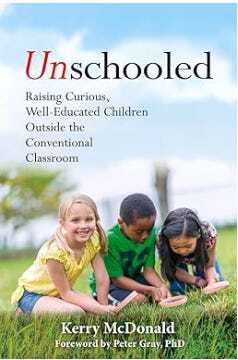 The Real Lincoln by Thomas DiLorenzo
The Real Lincoln by Thomas DiLorenzoLast year, I watched Tom DiLorenzo talk about the Axis of Evil: America’s Three Worst Presidents. And no, they aren’t the presidents that historians conducting these rankings think. In fact, the three presidents listed are often found at the top, and one of those men is Abraham Lincoln.
I’m currently about halfway through this one, and I’ll never look at Lincoln in the same way again. Not that I have for a while now, since checking out DiLorenzo’s speech and reading the booklet of the same name I have on my end table.
But if you want the full scoop on the so-called Great Emancipator, this is the book for you. For one, Lincoln never ended slavery, something William L. Anderson of the Mises Institute was kind enough to remind us, even if the linked article is on Herbert Hoover - another one mainstream historians get wrong, albeit in a different way.
You’ll find that Lincoln never really cared for blacks. And DiLorenzo points out, and I’m describing this in my own words, that Lincoln didn’t want anything to do with them. Lincoln wanted to round them up and ship them somewhere else. He also supported the Fugitive Slave Act of 1850, the Corwin Amendment, and he assaulted scores of civil liberties. You’ll also get a good grasp on his backstory, but I hope I laid out a good background for you.
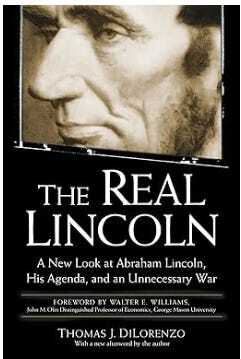 A Long Way from Chicago by Richard Peck
A Long Way from Chicago by Richard PeckIf this one sounds familiar to you, it’s because I already reviewed it when I read A Long Way from Chicago last year. But when I stumbled across the audiobook version on Spotify, I couldn’t help myself. There’s just something fascinating about listening to a book to get a grasp of what these characters might have sounded like.
This is a book both young kids and adults will enjoy and laugh at every time they pick it up. It’s one of those books that never gets old and will age better than fine wine.
Joey and his younger sister, Mary Alice (the protagonist in the sequel, A Year Down Yonder), spend seven unforgettable summers with a horrible influence - their grandmother. But then again, Grandma Dowdel has quite a few libertarian concepts to her name, so in my book, she’s a rather good influence.
She’s not afraid to defy petty laws (One-Woman Crime Wave), nor is she scared to take the law into her hands (The Mouse in the Milk). She’s also rather good at scaring journalists away (Shotgun Cheatham’s Last Night Above Ground).
I also have A Year Down Yonder on my TBR, since it’s approaching its 25th anniversary. Heck, I remember when Richard Peck first released that book, and I remember being so enamored with its description that it wasn’t long until I had a copy of it in my hands.

March 27, 2025
The original Harry Potter books have become a set of sacred texts
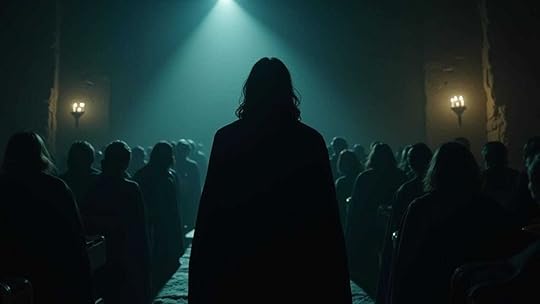
If you haven’t yet heard, HBO is unleashing a Harry Potter TV show sometime in the latter half of the decade. I’ve heard varying takes on this, with some sources saying 2026 while another I read even said 2027.
Frankly, I don’t know who’s telling the truth here, and I don’t care. It’s a TV series I don’t plan on watching, mainly because of the direction it’s heading if confirmations regarding the early cast members are true. Part of me is concerned that the series will be so unfaithful to the source material that it’ll completely change the way many think of the franchise.
The Libertarian Book Reviewer is a reader-supported publication. To receive new posts and support my work, consider becoming a free or paid subscriber.
This is why the books, in their original or at least slightly revised forms, are becoming more sacred by the year. We’ve already seen something similar happen with Snow White recently, showing us that fans crave authenticity over forced diversity. As they should.
The biggest mistake so far with the Harry Potter TV showI recently read a piece from a blatantly leftist outlet (yes, I read such material) talking about why the new TV show should cast a white actor for Severus Snape instead of Paapa Essiedu.
While the author cherry-picked racism from fans’ criticisms in other series and used a carefully-crafted sample of posts on Twitter/X to drive their point home - along with playing the usual racial minorities are the victim game when audiences simply crave authenticity - at least they were on board with keeping Snape white.
Oh, and if you want to see the victim game being played, look no further than one of my all-time favorite videos:
Of course, they’ll cite DEI and pretend all the ‘good’ it’s done for the world. But they also fail to consider the drawbacks. I’ve read many posts on the topic, but a recent one from Jon Miltimore is the best example here.
Being that Hollywood can’t help but continually race swap major characters is bad enough as opposed to coming up with new ideas and franchises that place black, Hispanic, or Asian actors at the forefront, for the most part, anyway, we knew this was coming. And personally, I’d have supported it had they cast someone like Jorge Garcia (who is Chilean) to play Rubeus Hagrid.
But here’s the kicker - Garcia has in the past looked like Hagrid without even trying and could probably still pull it off. Couple that with the fact Garcia is a great actor who played one of the most memorable characters on Lost back when it was a thing, and I would’ve 1,000 percent been on board with it.
Either way, we knew a swap was coming. But casting a black man as Severus Snape is about the absolute worst mistake the show’s producers could make. It’s like they never read the books and explored the character’s backstory. If you haven’t, let me give you a rundown.
Severus Snape’s backstory is one of the series’ most tellingAlright, so Severus Snape was born to Eileen Prince and Tobias Snape, the latter of whom was rather neglectful and abusive. Further, Snape grew up in an area called Spinner’s End, located in Cokeworth.
He was rather poor, something we saw during the Pensieve scene in Chapter 33 of Harry Potter and the Deathly Hallows, entitled The Prince’s Tale. Snape met and was immediately smitten with Lily Evans before they even started their school career at Hogwarts.
While at Hogwarts from 1971 to 1978, Snape immediately became the target of relentless bullying, spearheaded by James Potter and Sirius Black, arguably the most popular boys in school. We saw the sheer extent of this bullying in Chapter 28 of Harry Potter and the Order of the Phoenix, Snape’s Worst Memory.
Thanks for reading The Libertarian Book Reviewer! This post is public so feel free to share it.
In the scene, James spots and harasses Snape simply because Sirius complained that he was bored. James went as far as to magically suspend Snape in midair, asking the onlooking crowd of students who gathered if they wanted to see them remove Snape’s pants.
Lily, still friends with Snape at the time, tried to stop James. But Snape, in a rage, stated he didn’t need a “Mudblood’s” help. Just for context, Mudblood is akin to a racial slur for those who are Muggle-born. Of course, this caused Lily to sever ties with Snape, and she ultimately ended up dating and marrying James, a relationship that started in their seventh year.
You could probably see where this is going…Not only does Essiedu not resemble Snape in the slightest, and I’m going way past skin color here as he’s way too good-looking to play the character, but Snape’s overall backstory could wind up with the following:
Having a black character growing up in a broken, abusive household
A black character bullied relentlessly by two popular white characters, assuming white actors are playing them
A white girl/woman choosing that same white man to date and marry despite that relentless bullying over a black character who loved her
Yeah, so you can see why the red flags are going off here. And the above is an ‘including, but not limited to’ list. I can write an entire book on why this might be the worst idea any production, past, present, or future, has come up with.
Harry Potter is already more diverse than you think…If you’re new to Harry Potter, you’ll know that the series has a great deal of ‘representation,’ if we’re going to use the word for it. There’s Angelina Johnson, Alicia Spinnet, Lee Jordan, Kingsley Shacklebolt (a fan favorite, by the way), Blaise Zabini, and Dean Thomas.
A black actress also stood in for Lavender Brown until Jessica Cave got the role in the movies. And to be honest, I always pictured and still picture Lavender as black, and this was before the first movie was released in 2001.
Then there’s Cho Chang, Harry’s first love interest and probably the driving force of why I find East Asians so attractive. Hey, I ain’t gonna lie here. Let’s not forget the Patil twins, Parvati and Padma, who are Indian. And it’s also been implied, at least through the movies, that Professor Aurora Sinistra was black.
The Libertarian Book Reviewer is a reader-supported publication. To receive new posts and support my work, consider becoming a free or paid subscriber.
If anyone were to sit there and say with a straight face that the series lacked diversity, they’re either lying or more forgetful than Neville Longbottom. Still, if you had to race swap a character from the books (or movies), why not go with one whose skin color isn’t mentioned or implied in one way, shape, or form in the books?
If there’s no implication beyond the shadow of a doubt, then it’s fair game. But as for Severus Snape, it’s pretty clear that he’s been white since J.K. Rowling first concocted the character. And I like I said previously, Essiedu is too good-looking to play Snape, whose features would scare even the bravest souls running for the mountains surrounding the school.
Harry Potter books just became even more sacredI remember reading the Harry Potter books for the first time, and then going back through them after I watched the first couple of movies and picturing the characters the way they looked in the films. Every five years or so, I’ll dig them back out and revisit the series, so the next time around, I think I’ll take the purest route and picture them the way Rowling originally sketched them out.
There’s just something sacred about sticking to the original version of the way the author envisioned such characters. So, I guess I’ll be in for a (relatively) fresh take of Potter when intuition tells me to open the books back up.
Oh, and I’m sure some Lefty will probably cross this article and deem me a racist for possibly saying something they don’t like in this essay. But, as I’ve always said, it pays to play chess (and yes, I do have a Wizard’s chess set), because you always need to be two or more moves ahead of your opponent. So, let me give you the rundown of some character backgrounds in my own work:
Elementals of Nordica: Sion Zona - Half-Middle Eastern-equivalent to our own world
Shia Eaglesky - American Indian equivalent
Chronicles of Rondure: Mina Hirai - East-Asian equivalent to our own world
Sentrys (yes, Sentrys) of Terrene: Sabre Kjaergaard - olive-brownish skin tone
Terrian Chronicles: Liza Fury - Bisexual
At the end of the day, those of us critiquing this new series and others like Snow White are critical of DEI, as opposed to organic diversity and inclusivity itself. And in a very, very memorable article I read recently, Dave Emmanuel put it this way:
“If an organization’s human resource framework prioritizes qualifications, merit, and achievement with no regard to race, ethnicity, or sexual orientation such a framework is in fact a de facto DEI policy.”
The “good” DEI, that is. Plus, it’s organic, as opposed to artificial, and the latter is what you get from DEI programs overall. And trust me, you’re looking at a guy who, even if I have to be vague about it, has seen its artificial take in action.
March 26, 2025
3 unforgettable young adult books that inspired Cursed Mage’s characters, themes, and story
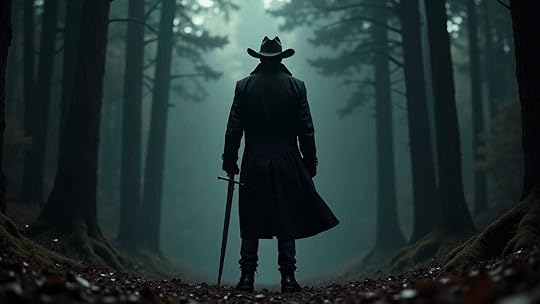
Cursed Mage isn’t just a dark paranormal fantasy. Instead, it’s a culmination of young adult books (or new adult, which sometimes gets included in young adult) that I’d read and found inspiration in starting in 2020.
The Libertarian Book Reviewer is a reader-supported publication. To receive new posts and support my work, consider becoming a free or paid subscriber.
While I took inspiration from more than just three works, those listed below are the most prominent in the young adult category, starting with a paranormal fantasy whose trilogy I’ve been talking about often. But there are two others that deserve recognition yet I’ve talked little about, if at all. So, let’s righten the ship and give them some love.
Note that these books aren’t all dark paranormal fantasies; Book 2 on this list is strictly dystopian, and Book 3 is, well, it’s hard to pinpoint a genre for it, but science fiction is my best guess. Anyway, let’s get to the good stuff and talk about a few books that were lightning-fast reads when I first ‘picked’ them up.
1 - Spirit Legacy by E.E. HolmesI talked about this one in previous ‘inspiration posts,’ but no book brought Cursed Mage to life more than E.E. Holmes’ Spirit Legacy. That said, I’m elaborating a little more here. From the characters to the story, you’ll find more elements inspired by Spirit Legacy than anywhere else.
A female protagonist who can see spirits? Yep, that came from Spirit Legacy. College crush who’s dead? Check. Sister Kaija never knew she had? Check again. While there are some night-and-day differences, Spirit Legacy deserves a ton of credit here.
The biggest difference is that Cursed Mage tells a darker tale, and that Kaija’s crush’s death wasn’t incidental, but beyond brutal and tragic. There’s also the fact that Kaija gets a nice little initiation into her newfound ability earlier than Jess Ballard does in Spirit Legacy.
Plus, I also had to conform my magical system to books on my backlist. One in which Mages (also called Elementals and Sentrys - and yes, I spelled Sentrys that way on purpose) at higher levels channel their magic through swords that spontaneously manifest in their hands.
But if you’re looking for the foundation here, Spirit Legacy has it, and it’s a book I never get tired of reading.
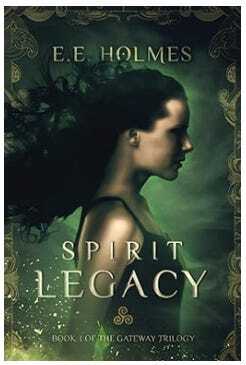 2 - Beyond the Wall by Kate L. Mary
2 - Beyond the Wall by Kate L. MaryThis one is a dystopian tale that follows just about every libertarian’s worst nightmare. I like comparing it to Aldous Huxley’s Brave New World, considering how everyone in the society seems to be happy, so long as they don’t ask too many questions. Ironically, George Orwell’s 1984 makes a few grand appearances.
You’ll find Beyond the Wall popping up in several articles like this, since Mary’s work also inspired my post-apocalyptic military science fantasy, The Rebellion Awakens (Book I in Sentrys of Terrene). A book whose plot a rather popular movie franchise called Star Wars also helped inspire.
Thanks for reading The Libertarian Book Reviewer! This post is public so feel free to share it.
Anyway, Cursed Mage and Beyond the Wall hold similarities given their sinister societal overtones. While Cursed Mage just whispers hints that the nation of Vimsinew is living under an oppressive regime and nobody seems to care so long as they’re happy and have nothing to hide, much of that inspiration came from Beyond the Wall.
In Cursed Mage, you’ll hear of a broad term called institutions, which carries several meanings. Little is known about them, other than the fact that they seem like rehabilitation centers for those claiming to see spirits, or simply talking too much online about what the Vimsinewian Government doesn’t like.
In Beyond the Wall, the protagonist, Drea Young, discovers the existence of a prison colony. It’s a place they send those who commit crimes that even involve conceiving a child before they’re matched.
Oh, and I know most of you reading this are libertarian. Well, if you’d like some excellent libertarian themes or just work published after 2020 that isn’t crazy woke, Beyond the Wall is it.
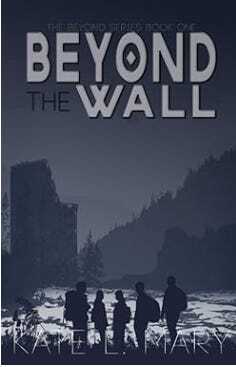 3 - Rise of the Six by Matt Ryan
3 - Rise of the Six by Matt RyanYes, in a previous piece, I talked about how Matt Ryan’s Alchemist Academy played a role in Cursed Mage’s creation. But it wasn’t the only book or book series out there of Ryan’s that I drew inspiration from.
Rise of the Six is Book I in the Preston Six, and it talks about six kids who were all born on the same day. But if you want some insight on my inspiration for the Huotaja (huo-tai-yah), guardians of that oppressive political party’s most prominent representatives and members, look no further.
In my backlist books that I launched almost exclusively to my mailing list, the Huotaja make frequent appearances in these other worlds, even if they’re not in the same series as Cursed Mage. Often simply called Mercenaries or Merks, depending on the timeline, these people stand between 6’6 and 7 feet tall, boasting broad, muscular bodies, and elemental magic that’s so powerful, their attacks are at times the equivalent of getting hit by a tank.
They’re frightening in appearance, but when you place Stetson hats on their heads and just over their eyes, leather trench coats, black denim, and combat boots, they’ll send chills down just about anyone’s spine. Not to mention that they’re trained to kill indiscriminately and without remorse.
You’ll meet the Huotaja, which translates into caretaker - oh, they’re caretakers, all right - in Cursed Mage. They appear in Act III and toward the climax, but their prominence grows throughout the series.
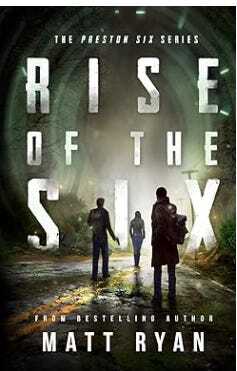
March 24, 2025
One dark epic fantasy that will give Snow White fans a sane space

Okay, confession time: I didn’t even know there was a new Snow White movie out there until this past Thursday. Yeah, leave it to me to fall behind current trends. But, I was dealing with a book launch for Cursed Mage while trying to figure out how to keep the momentum going post-launch. Oh, and a few of my favorite K-pop artists also had some awesome new material out there.
The Libertarian Book Reviewer is a reader-supported publication. To receive new posts and support my work, consider becoming a free or paid subscriber.
Some teen sensation named Gyubin had a new EP that made for great gym and running music. Yuqi unleashed a new single, Le Sserafim came out with a new EP, and Minnie collaborated with someone whose name is slipping mine and released some anime-esque song. Hey, alongside power and symphonic metal, it’s the best genre out there.
Anyway, I’m sure the second all of the above see the new Snow White movie, chances are, they’ll rave about it. Because what else would they say, right? While I currently have ‘no comment’ on the film because I’m not going to review something I haven’t seen (or read), I will say that all the negativity surrounding it inspired me to concoct this piece.
Why? Well, I know of a dark fantasy that might just give disappointed fans a good old sane space when they need one. And no, that epic fantasy ain’t Spirit and Fire - but once I relaunch the thing from Amazon’s doldrums, I’ll let you know about it. And by the way, the covers are looking good!
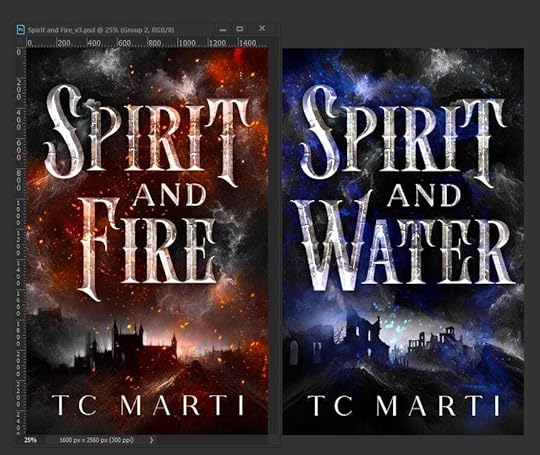
Instead, this book is a dark fantasy retelling of, you guessed it - Snow White. And with some Red Riding Hood vibes. But be warned: It ain’t for children. Oh yes, this one’s a dark read that’s gracing my bookshelf in my back office and one that I read a few years ago in e-book format. But I loved it so much, I bought it in paperback, too.
Welcome to a dark world that Fog & Mist bringsHere’s what really sold me on the book when I first crossed it at StoryOrigin of all places, and this is taken right from the Amazon page: “Inspired by the legends of Snow White and Red Riding Hood, Fog & Mist is a spellbinding tale of betrayal, resilience, and the fight for freedom. Perfect for fans of dark fairy tale retellings!”
Anyway, this one’s more than worth me re-reading because it can also be a comp title to Spirit and Fire, namely because Fog & Mist’s main character, Winterberry (Winter), is a crown princess and she’s about to take the throne. But, of course, her evil stepmother, Queen Blanche, has other ideas.
Winter is sold into slavery and she also ends up in enemy territory. Her only real ally here is an enemy prince. Yeah, sounds a lot like my own main character, Mali LaSalle, who is a member of the Untouchable caste forced into an alliance with whom she considers a natural enemy - Crown Prince Caer Cymraeg.
Thanks for reading The Libertarian Book Reviewer! This post is public so feel free to share it.
I don’t remember drawing inspiration from this novel, but maybe my subconsciousness was going to work when I first wrote Spirit and Fire. Anyway, I remember reading Fog & Mist, expecting a slower-paced read that you’re sure to find in epic fantasy. Instead, I blew through this one and was happy to find out it had a sequel, Fire & Frost.
It was disappointing to see that Kelsie Engen hadn’t written Book III yet, but it’s one of those series you just kind of peek back to its Amazon page, hoping to find it there, ready and waiting.
Fast-paced, adrenaline-pumping epic dark fantasyOften, I like writing reviews and breakdowns of books that can give readers a libertarian takeaway. For this one, the theme is obviously power, given Queen Blanche’s desire to keep Winter out of the way.
And it reminded me of a recent article from Jon Miltimore, whose content played a role inspiring me to create The Libertarian Book Reviewer when I saw the way he broke down quite a few novels and added a pro-liberty tilt to them. Anyway, it was a quote from Frank Herbert in one of Miltimore’s latest pieces that jumped out at me. It read:
“All governments suffer a recurring problem: Power attracts pathological personalities. It is not that power corrupts but that it is magnetic to the corruptible.”
It’s safe to say Blanche fits the mold here. I don’t know if Winter would be the ‘right person in power’ or not - a common thought process among those on the mainstream Left and Right in their never-ending quest to ‘elect the right people’ - but the point is, Blanche found herself drawn to that power. So much, she didn’t mind pushing Winter aside in the worst way.
You care about Winter early in Fog & Mist, and it’s why this seemingly long read won’t take too much of a time commitment to finish. But I just have one request to Kelsie Engen: Give us some more sequels when you get a chance.
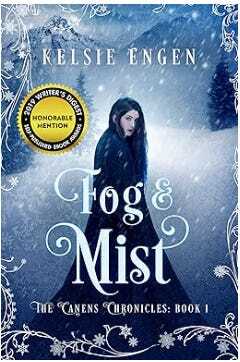
March 21, 2025
The Arcane Prophecy is wrought with a certain Chaos Theory
 Aurora is based on Wintersville, Ohio, and this picture sort of looked like the town’s Overlook Hills region.
Aurora is based on Wintersville, Ohio, and this picture sort of looked like the town’s Overlook Hills region.One of the biggest perks of remote work is that I only need to change my oil once a year. And not even that, really, but to keep my aging Chevy Cruze somewhat efficient and to avoid making car payments for as long as possible, I like to get the oil changed annually, often between May and September.
The Libertarian Book Reviewer is a reader-supported publication. To receive new posts and support my work, consider becoming a free or paid subscriber.
As you probably guessed from that opening paragraph, I’m also a homebody whose idea of ‘human contact’ involves an hour or two at the gym, and to avoid getting hit by a car when I’m out running during those warmer months. Since the Northern Panhandle is full of commuters to Pittsburgh, Pennsylvania, it’s always a risk and a half to go out for a run between 5 and 6 in the evening.
But risk is fun, and I’d rather live a high-risk, liberty-loving life when I feel like it as opposed to cloaking myself in bubble wrap and joining the “good” old safety crusades. And the quaint, little village of Aurora, Etharia - a fictional town in a fictional country in my made-up world of Xadis - is just that.
See, Aurora, which hosts the for-profit 32-school Arcane Elemental Academy, is perhaps the dream village for libertarians. Nothing is publicly funded, and everything is privatized. And yep, they’re doing a pretty good job of ‘taking care of the roads,’ even in this tax-free society.
How do they succeed, even if there’s at least one bad apple in town? Simple: Voluntarism. The village itself is a mini-Prospera, so to speak, much to the chagrin of our soon-to-be antagonist and their influential political faction that seemingly every member of Etharia’s legacy media loves.
Aurora Village is constantly in chaos and it’s a beautiful thingSo, where did I get the idea for Aurora Village to insert itself into such chaos, anyway? Well, a little book by Dr. Robert Murphy called Chaos Theory. Remember when I was talking about that oil change earlier? Yeah, I was listening to the Human Action Podcast, something I need to get back into the groove of but Tom DiLorenzo’s The Real Lincoln has been taking up much of my Spotify time, during that fateful oil change.
It was a recording of one of Murphy’s lectures at Oklahoma State on invitation from the Free Enterprise Society. This episode, recorded in March 2024 (I didn’t listen until May), was called Making the Case for Private Law and Defense From Scratch.
Thanks for reading The Libertarian Book Reviewer! This post is public so feel free to share it.
It was from this episode that I stumbled across Chaos Theory, a book that is really the culmination of articles on private law and an essay on private defense. Murphy often mentioned, both in Making the Case for Private Law and Defense From Scratch and Chaos Theory, that insurance companies would play a massive role in sectors governments had traditionally taken part in.
Now, I’m not going to attempt to write a full article today about how Chaos Theory inspired Aurora Village yet, as I’d be turning a ~1,500-word post into a 10,000-word essay if that’s the correct word for it.
Instead, I wanted to stress that Murphy’s work influenced Aurora and highlight just one section of the work that he calls Doubts and I call Objections. Overall, the first four that appear in Chaos Theory deserve to be highlighted. But first…
Learn to love doubts and objectionsIt doesn’t matter where you sit on the political spectrum, horseshoe, call it what you want. One common denominator I see regardless if one is left-wing, right-wing, libertarian, centrist, or a combo, is averse to doubts and objections.
One reason is that any doubt or objection challenges one’s worldview unless the doubter is intentionally playing devil’s advocate. Anyway, while I listened to the podcast and read the book, I personally had no objections, even if I was wondering, for a while at least, how this would factor into the military.
From my point of view at one time, there wasn’t anything in the public sector that couldn’t perform better in the private sector thanks to a higher level of accountability in the latter, among other factors, like a more accurate measurement of profit and loss. But the military was the one entity I thought, at the time, was non-negotiable.
Of course, Murphy had his answer laid out. But I’ll save that one for another time, as I’ll instead highlight four of the doubts and objections in Part I of Chaos Theory, all of which I highlight in The Arcane Prophecy’s manuscript - yes, it’s a work-in-progress, even if its freebie novella, Arcane Awakenings, is available.
What if someone has no insurance?There’s one character in The Arcane Prophecy who pops up time and again in this predicament, especially if you read the work closely. They’re not popular with anyone, be it the protagonist, the main supporting cast, minor characters, or even those who play a more neutral role.
They have little freedom of movement, even if they like sneaking around and lurk in the shadows. However, they are also a major outlier here, something one of my supporting characters is clear with to my protagonist, Yote Diamondback.
Murphy highlights something similar when he refutes his doubt, saying, “So we see that those without insurance would have their options, including freedom of movement, greatly restricted. At the same time, the premiums for basic contract insurance, at least for people without a criminal history, would be quite low.”
This particular character is more of a pest than a criminal, pushing the boundaries just far enough that a crime hasn’t been committed. Sure, they’re looked on with major suspicion. But even if they had committed a crime, there would be multiple private agencies out there going after them, something Murphy also covers.
Warring AgenciesOkay, I love this one, because one of Yote’s very complicated friends is sure one of the law enforcement contractors is giving others in Aurora and its surrounding Northern Region an ultimatum - let us buy you out or we’re going to use lethal force until you agree to a buy-out.
Luckily for this character, they need not worry. Instead, it’s their bias against a specific family whose patriarch owns said company that ignites these baseless claims. For one, and Murphy isn’t shy to point this out: “This happens to governments all the time!”
Yeah, just turn on your favorite propaganda network and you’ll immediately see that taking place - there’s “only” about three of them (wars, in case you haven’t caught on) in the news right now as I write this. The leader of this agency is a character Yote will meet and there’s one clear message: The guy likes making money. And no, that’s not a bad thing.
So, even if he did want to threaten other agencies to merge under him at gunpoint and they refused, a rather expensive conflict would erupt. Maybe he’d have the money to fight it, but he’d also be suffering heavy losses as these smaller agencies would band together. Not to mention the damage he would inflict across the region.
As Murphy stated and further drove home, “...private companies take much better care of their assets than government officials take care of their subjects’ lives and property.”
This character also implied that he works with these smaller companies anyway and they specialize in smaller infringements while he takes on larger threats - like violent, mythical creatures that sometimes like to pop into the area. Hey, this work’s in the fantasy genre!
Won’t organized crime take over?I can assure you that Aurora Village has no mobsters that I know about, assuming nothing’s a front, anyway. But let’s be honest: You can make the case that the State is organized crime in and of itself - it commits theft, it has no problem dropping bombs in foreign nations, it shoves laws and regulations down our throats, and threatens even more extortion if you have the audacity to disobey.
Murphy says something similar in his work, and he lists several illegal activities, like drug dealing and loan sharking, that organized crime not involved with the State capitalizes on. Nothing in Aurora is off the table here, meaning if organized crime of any kind tried to compete with more honest innovators regarding all of the above, they’d have a tougher time capitalizing on it.
Wouldn’t insurance companies become the State?This was the objection I waited for, since if I were to sit across from someone and explain this theory, it would be the No. 1 doubt that I would anticipate. But we’re dealing with several insurance companies here taking on different niches.
This isn’t what the State does. While you can argue each department that the State owns may be a niche in and of itself, it still belongs to the same monopoly. In Aurora Village, just as would be the case in a real-world libertarian society, there would be too much competition between these entities for any one company to take over.
While we do see mergers and such taking place in our world every year, we also need to remember that there’s a lot of corporate lobbying going on and regulations to prop up select companies at the expense of others. In Aurora, as in Chaos Theory, there is no corporatism at work.
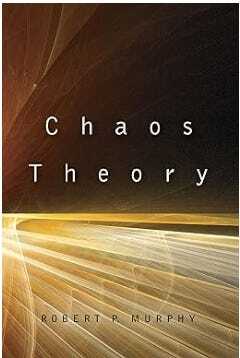
March 17, 2025
The other book from World of the Gateway libertarians must add to their TBR list
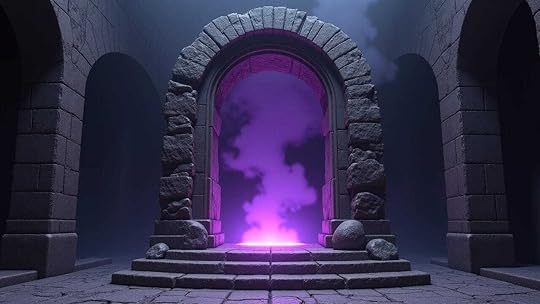
Throughout the first three months of 2025, I’ve been covering the Gateway Trilogy from many different angles. As you know if you’ve been following me closely, I concocted a series of articles on Spirit Prophecy, given its themes of power and control, and the dangers government bureaucracies pose.
The Libertarian Book Reviewer is a reader-supported publication. To receive new posts and support my work, consider becoming a free or paid subscriber.
But there’s another book, this one in the sequel Gateway Trackers, that I also need to recommend. Since I’m focusing solely on the Gateway Trilogy for 2025, it’ll be a while before I cover Soul of the Sentinel, Book VI in the Gateway Trackers. But I also wanted to mention it here before I dive deeper into Spirit Ascendancy.
One of the phrases I’ve come across often lately is that the “winners get to write history,” along with “the winners get to tell history.” This is one reason it’s so important to question history you’re taught in government school settings, something I set the stage for in a book series I plan on releasing after the Catenarian Chronicles reaches its pinnacle, Arcane Elemental Academy.
For a real-life example, I like turning to Reconstruction of the South following the War Between the States. You’ll get one dominant narrative whether you attend a government school or a heavily-replicated private school. Yet, if you check out works by great writers like Wanjiru Njoya at the Mises Institute, you’ll rethink things.
Anyway, this brings me full circle to Soul of the Sentinel, which is my favorite book in the Gateway Trackers. In it, Jess learns that everything she’d been taught about the Durupinen is an outright lie, and it sets the stage for Gift of Darkness, in which she’s tasked with revealing that lie while setting things straight.
Say something they don’t like or question their narrative, and they will come for usWinners not only get to write and tell history, but in today’s world, they tell their version of history at the expense of mass amnesia and, ultimately, coercion. We know this because of the sheer number of kids who are and have been forced into government schooling, or private schools that spew similar narratives.
For me, whenever coercion is involved, the red flags start rising. Good ideas don’t involve force, so if bureaucrats force you to play along, feel free to question them. No, they don’t particularly like being questioned, and the COVID crisis only taught us that those who question official narratives are often subjected to name-calling.
But then again, aren’t these no more than scare tactics to discourage and deter questioning government-endorsed narratives? Those who have put their reputations and livelihoods on the line, and have been targeted like none other in the mainstream media?
Dr. Robert Malone, Tulsi Gabbard, Thomas Massie, Dr. Jay Bhattacharya, and Clifton Duncan, to name a few, have been subjected, and so have many others whose names are escaping me. Say, or do something we don’t like, and face the consequences, and if you keep going, we’ll just ruin your life, they tell us.
Soul of the Sentinel’s themes highlight how far bureaucrats will go to conceal secretsHere’s a summary of what happened to an ancient spirit in Soul of the Sentinel, who knew of the Durupinen’s deepest, darkest secret. Their knowledge coaxed the Durupinen to do more than imprison them for centuries in their priosun on the Isle of Skye, Scotland.
Thanks for reading The Libertarian Book Reviewer! This post is public so feel free to share it.
They also told tales of this specific spirit in Durupinen lore, rendering it as this evil monster who’d come for their children. Basically, they destroyed its reputation, blackballing it to the darkest corners of the Durupinen Sisterhood and burying it so that deep, dark secret would never see the light again.
What was that secret? Well, it had something to do with the Durupinen’s true purpose, which involved interacting with spirits and guiding them toward the Gateway, where they could Cross. But, for all of the Gateway Trilogy and most of the Gateway Trackers, this wasn’t how the Durupinen operated.
Instead, they performed a Casting centuries in the past; one that was intended to bring about temporary protection to the Gateway. Following this Casting, instead of guiding spirits to the Gateway itself, they would Cross these spirits through a Gateway that now resided within their own bodies.
Of course, you can see where this is going, I’m sure. It wasn’t long before the Durupinen realized that, with the Gateway inside them, they had a nice, little power play. It gave them more control of the Gateways, and it made spirits who resided in the physical realm more dependent on them.
Temporary “solutions” that became permanent for centuriesNot all Durupinen abused this power, and that’s something that must be made clear. But many, including a strong contingent on the Council, did. Doing so allowed the Durupinen to look like supermodels regardless of how old they were; it gave them this “spirits serve us” mentality.
Since Durupinen were supposed to serve the spirits, guide them, and nothing more, their original purpose didn’t give them much power. But, by having the spirits at their disposal and spinning a narrative that, no, they still “served” the spirits since they still “helped” them Cross but with a giant asterisk attached to it, it let them “justify” keeping the Gateways concealed within them.
If there’s one thing that the Durupinen have always been good at, especially their bureaucracies, it’s involved creating situations that threaten their existence. It’s something we’ve seen in the Gateway Trilogy, and the Gateway Trackers expands on this concept.
The Libertarian Book Reviewer is a reader-supported publication. To receive new posts and support my work, consider becoming a free or paid subscriber.
Once “the Sentinels have begun their watch,” strange things happen to select characters as they stand in front of the Geatgrimas (the true Gateways), as though mesmerized by them. The latter of which was supposedly a symbol of the Gateway that resided in the Durupinen thanks to those in power claiming it to be.
But, as we later find out, it was a lie. The Durupinen were clear winners in history on many occasions, and they snuffed out anyone who threatened their status for centuries. Concealing the Gateway was supposed to be a temporary solution, but it turned into a permanent policy in the centuries that followed.
Is a force for good really what it looks like on the surface area?A force for good. How many times have we heard that phrase thrown about? It seems like anything those running the show like will use that buzz phrase.
If I’m not mistaken, I believe I’ve heard several U.S. military advertisements throw it around. But is it really a force for good when it’s done nothing but create conflict, and when there isn’t enough conflict, has it not gone out in search of “monsters to destroy?”
All the while, becoming that same monster in the process? We can apply this to so many concepts, such as wealth redistribution, DEI, ESG, the “right” to healthcare, education, etc.
But doesn’t the former punish success? DEI does nothing more than divide people into groups and categories, discriminating between protected and unprotected. ESG has been dying a slow death since it can sacrifice profits in favor of “social responsibility,” and you can say the same for CSR.
And doesn’t claiming the “right” to concepts like healthcare and education mean you have. Isn’t this, as Ron Paul once said, “claiming the right to someone’s labor, and that is a form of slavery”?
Once again, when someone claims “force for good,” especially in government, government school, corporate, and legacy media circles, it’s always fine to question it. Because with some digging and deep thinking, you might draw another conclusion.
As for the Durupinen, they talked themselves into thinking they too, were a force for good. Don’t believe me? I’ll leave you with a snippet from the description of Book VII, Gift of Darkness, yet another outstanding fiction read libertarians would do well to add to their TBR list.
“The Durupinen have always considered themselves a force for what is good in the world, but has the intoxication of power left them unable to distinguish between what is right and wrong?”
Are what I listed forces for good? Or, are they spun into so-called forces for good by those who, like the Durupinen, are simply drunk on, or looking to attain, power and influence?
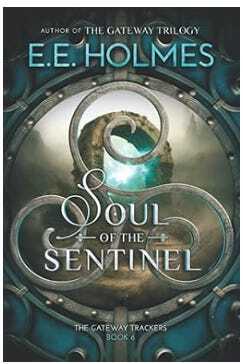
March 14, 2025
7 ways Spirit Prophecy inspired Astray Mage
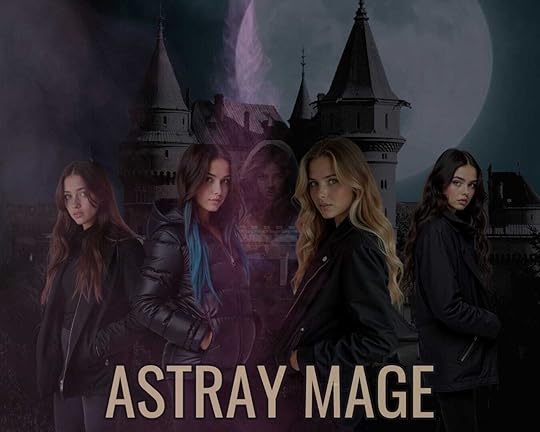
Well, with Cursed Mage now circulating throughout the masses, it’s time to turn my attention to Book II in the Catenarian Chronicles, Astray Mage. Just as E.E. Holmes’ Spirit Legacy influenced Cursed Mage more than perhaps any other book, movie, or TV show out there, Spirit Prophecy also inspired Astray Mage, but to a lesser extent.
The Libertarian Book Reviewer is a reader-supported publication. To receive new posts and support my work, consider becoming a free or paid subscriber.
Nevertheless, rolling with that familiar, but fresh approach, I can count seven ways Holmes’ instant classic rubbed off on Astray Mage. Again, it’s more subtle in Book II, and that becomes even more of the case for what I have planned for Book III, Rising Mage, but there was still enough to pen an entire article around the subject.
1 - A child spiritIn Spirit Prophecy, Jess crossed a Caged spirit known as the Silent Child. This girl would feel intense pain every time she tried to communicate with Jess. And the Silent Child, whose real name is Mary, let Jess in on what this doomsday prophecy looked like after she was Uncaged.
In Astray Mage, Kaija also meets a child spirit, but that’s where the similarities end. As opposed to being dead for centuries like the Silent Child, this spirit has only been dead for a couple of years, and she lets Kaija in on how she died early in the work.
It’s one of those OMG moments for Kaija, who, upon discovering what happened to this girl, realizes there’s way more to the Augury Party than meets the eye. If you read my freebie Deceived Mage, you’ll know where I’m going with this.
2 - The settingJust like Fairhaven Hall, Linna Yliopisto is a vast, ancient castle. While it seems like it’s set in the countryside, the reader will soon find out that’s not the case. Again, if you read Deceived Mage, you’ll already know what’s up, but if you’re more of the climactic type, you’ll be in for a surprise starting with a one-liner in Cursed Mage.
As with Jess, the novelty of castle life wears off rather quickly for Kaija, and reality sets in when she sees the next item on this list in action.
3 - AuthoritarianismI’ve been telling my closest friends that there are close links between Deceived Mage and Astray Mage, as the two books play off one another. While reading Deceived Mage is completely optional and not required to understand the Catenarian Chronicles, it provides solid background information on characters like Samuli Kinnunen.
It also implies something about Ella’s twin brother, Heikki. Ella becomes the first Mage friend Kaija makes, so naturally, there’s a bond here. So, when Ella takes matters into her own hands of why the spirit of that young girl is reaching out to Kaija, the reader will learn that it’s not something Ella’s permitted to do.
Thanks for reading The Libertarian Book Reviewer! This post is public so feel free to share it.
It’s another OMG moment for Kaija and a real eye-opener when Ella “goes missing” for a few days. Once again, Deceived Mage sheds light on this.
Anyway, when Jess and Hannah first enter Fairhaven Hall, it’s not long until they realize just how bureaucratic the place is. But, as time goes by, they learn of the corruption, control, and the outright lengths the Durupinen Council will go to maintain their Sisterhood’s status quo.
4 - HazingIn Spirit Prophecy, Jess and Hannah find themselves the subjects of a brutal hazing “ritual” as a way to “atone” for their mother abandoning her duties to the Durupinen. Things take a brutal turn when an Elemental shows up - think something comparable to a Dementor from Harry Potter.
But, Jess and Hannah escape and even turn the tables on the other Durupinen Apprentices. As for Kaija, she’s no outcast since her parents ran away not from the Auguries, but their rival faction, the Mercenaries.
As the “new girls” who also happen to be Maalivahtis - Mages who can control one of the classical elements PLUS spirit simultaneously - Kaija and Lilja find themselves in one of the “cool” cliques.
But, not everyone’s willing to initiate them and feels that the two girls got a free pass. This character goes to great lengths to single out and haze Lilja, the more vulnerable of the two, in the most snake-like way.
Of course, Kaija’s not happy about this and when she catches wind of what’s going on, she does something she shouldn’t. And it makes her life at Linna Yliopisto that much harder.
5 - Runes, languages, and wardsIf there was something about Harry Potter I never cared for, it’s the fact that so many spells are in a form of Latin. Now, I love Latin, but I also like the old Gaelic/Celtic languages since they just roll off the tongue in a cool way.
Whether it’s Scots Gaelic, Irish, Welsh, or a similar language, they would’ve fit the Harry Potter setting so much better. Anyway, Spirit Prophecy uses those languages that are typically native to the British Isles.
As for Astray Mage and Cursed Mage, we instead use a modified form of Finnish. Why Finnish? Honestly, it’s a complicated yet cool language. Plus, I’m sure some of it has to do with my favorite symphonic metal band, Nightwish, hailing from Suomi.
Regarding runes and wards, I picked up the idea straight from the Gateway Trilogy, but stuck strictly to the Elder Futhark. Each rune corresponds to one of the elements, and much of what you’ll see in Deceived, Cursed, and Astray Mage came straight out of Lisa Chamberlain’s Runes for Beginners.
Rune magic and divination were something I was hardcore into for a while, and I’ve been meaning to get back into it. This became paramount when, after having lost my obsidian Kenaz rune for going on four years, it randomly turned up about a month ago. A sign? It might be, and a good one, too.
6 - Court sessionsI wrote an entire piece on this one in my previous post, as a nice, little, slanted court session made up Spirit Prophecy’s climax. As for Astray Mage, there’s a court case, something I implied would happen a couple of sections above.
But for this one, Kaija already committed the crime - just for the record, she didn’t kill anyone - and she knows the hammer’s coming down on her.
This was one of those scenes and chapters I wasn’t quite comfortable writing about, since it could cause the reader to see Kaija in another light. But, it worked because, to help set the stage for later installments, I needed to stack the deck against Kaija.
One thing to remember is that I prefer shades of gray as opposed to stereotypical dark vs. light, so antagonizing Kaija a little here while also providing some antagonistic sympathy for subtle a school bully, it allowed me to keep that theme going.
7 - Faction vs. FactionI know I’ve said this somewhere before, but one of my favorite storylines in the Gateway Trilogy is that it puts two corrupt factions against one another. Astray Mage follows that storyline well, but with one major difference.
As far as Astray Mage goes, all I’ll say is that Washington D.C played a role in inspiring that storyline. That said, I may have already given it away if you read between the lines, and it might be the most disturbing truth Kaija learns in Astray Mage.
The Libertarian Book Reviewer is a reader-supported publication. To receive new posts and support my work, consider becoming a free or paid subscriber.
Anyway, I hope you enjoyed this nice, little look-in for what will be Book II in the Catenarian Chronicles, which I’ll have slated for release in March 2026. But don’t worry, since there are plenty of other inspirations out there that touch on the book’s genre, themes, and tone beyond Spirit Prophecy.
March 12, 2025
Saving arguably Spirit Prophecy’s most important message for last

Wow, I can’t believe I took the greater part of a month not to read, but study Spirit Prophecy by E.E. Holmes. Couple that with Cursed Mage’s book launch and gearing up for more story edits in a related series, there’s a backlist of content that needs some TLC.
The Libertarian Book Reviewer is a reader-supported publication. To receive new posts and support my work, consider becoming a free or paid subscriber.
That said, I’ve been hitting hard on reading, but not studying, Spirit Ascendancy, since its themes that libertarians would embrace aren’t as prevalent. Still, it’s an entertaining and adrenaline-pumping read, especially when Jess realizes she’s in for a death-defying destiny when she discovers her role in the book.
Yeah, this is another reason why she’s well-suited to tell the story. But, do you know what else I like about Jess? She’s not afraid to stand up, even if she’s in the minority, to the corrupt Durupinen Council. Heck, I’ll even go as far as to say minute minority while shortly beforehand, she suffered extensive burns to her arms and hands.
Imagine being so out of it thanks to a spirit inhabiting your body so they could show you this doomsday prophecy. But the only way for you to see it yourself is if you drew it out in the vast entrance hall, using ash from an open fire as your drawing utensil.
It hurts just thinking about it, but this is the predicament Jess finds herself in. Oh, and there’s also a coup going on. One in which anyone working in mainstream news should take a look at so they know what an actual coup looks like when January 6th, 2026 rolls around. Anyway, let’s start with it.
Finvarra unseated in the most secretive, unceremonial wayAfter our Dolores Umbridge-like antagonist, Marion, seeks to move Jess and Hannah to the dungeons based on her and the Council’s speculation that they’re the subjects of this prophecy - one that could spell the end of the Durupinen Sisterhood - High Priestess Finvarra demands Marion to step down from the Council.
As it turns out, Marion’s a little more cunning and clever than Finvarra thought, as she instead turns the tables on the High Priestess. She presents an order of no confidence to Finvarra, which most of the Council already signed.
Thanks for reading The Libertarian Book Reviewer! This post is public so feel free to share it.
Marion cites that, despite the Council’s concerns regarding ‘the Caller’ mentioned in the prophecy, whom they believe is Hannah, Finvarra did nothing to look deeper into it. But, it went beyond the prophecy, as Marion and most of the Council didn’t even want Jess and Hannah to step foot in Fairhaven to train as Durupinen to begin with “after their mother’s disgrace.”
After Marion calls for the Senior Durupinen to enter the meeting chamber, she issues the formal vote. The motion passes, and Finvarra is stripped from her title while Marion takes over. Given the Senior Durupinen’s immediate arrival and the way the male Caomhnoir acted in this scene, it’s implied they were either in on this or they resigned themselves to carry out Marion’s orders.
It was a coup months in the making, in which Marion played on most of the Council’s fears. First, that Jess and Hannah were outcasts by association thanks to their mother running from her Gateway duties. Then, of course, the fact that Hannah was a Caller and one-half of a set of twins. The latter portion fit well into the prophecy.
Since Jess’ mother never brought up her father, it also led Jess to believe that the man she never knew was a Caomhnoir - Hint: Her father’s been keeping an eye on her for a while at this point.
And, of course, since the prophecy spoke of twins born from a Durupinen-Caomhnoir union, Jess made a pretty good guess.
Suspected of committing a crime that hasn’t yet been committedOne reason I’m so skeptical of the surveillance state stems from the possibility one could be suspected of being about to commit a crime with circumstantial evidence. This is why I’m a critic of the “I have nothing to hide, so I have nothing to worry about” crowd when I bring up why mass surveillance and tracking is a bad idea.
You may think you have nothing to hide, but that’s not up to you. Nope. That’s up to the powers that be to decide whether you’re hiding something, even when you’re not.
Jess and Hannah had nothing to hide regarding a prophecy they never even heard about when they first trotted into Fairhaven. Even as twins and with a Caller in the family, they still had nothing to hide (or so they thought), and Hannah was even excited about being blessed with such a rare ability.
Still, it provided fuel for the vengeful Marion, who leveraged Hannah’s ability to Call as a link to the prophecy and Finvarra’s do-nothing mentality as a means to get what she wanted:
Finvarra out of power so she and her faction could take it
Arrest Jess and Hannah for a crime they may never even commit
For me, and as with many books I read, Holmes is giving us a warning here. And again, whether this was intentional, I can’t say, since I’ve never asked. Either way, it speaks volumes to the “I have nothing to hide” crowd.
For me, it also says this: Never assume, especially since you’re not the decision-maker here. Jess and Hannah knew they were disliked; that much was clear. Jess may have even had an inkling that she and Hannah were in danger.
But to the point of imprisonment? That’s a stretch, and it caught everyone off guard until Jess had seen the prophecy she drew in the entrance hall that stretched from the floor to the rafters.
Jess is faced with a choiceAs mentioned in previous posts, and I know, they’ve been sporadic lately thanks to my current schedule, the Durupinen may be corrupt, but they’re surprisingly not the villains. Well, maybe Marion is, but what I love about the Gateway Trilogy is there’s ‘the bad,’ and then there’s ‘the big bad.’
And that’s what’s coming up in Spirit Ascendancy. For this book, you won’t see umpteen breakdowns since it doesn’t pertain as much to libertarians from a thematic standpoint until the climactic moments.
Anyway, I think I’ll sit back and enjoy the read, before sharing my final thoughts on the Gateway Trilogy before I turn my attention to Dirt Town, which has been on the TBR list for the last three months.
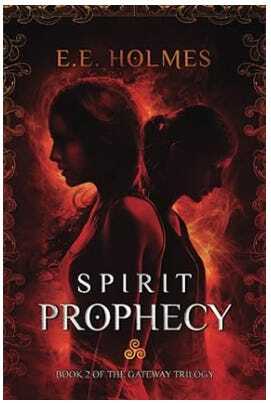
March 8, 2025
The 3 most polarizing characters in Spirit Prophecy who would be enigmas to libertarians

Spirit Prophecy, in case you haven’t already realized, is the one book in the Gateway Trilogy that I could probably write a book about. I may’ve said that its predecessor, Spirit Legacy, is my favorite in the series, but I’ve lately been rethinking that, given the libertarian concepts in Prophecy, and they extend to the characters.
The Libertarian Book Reviewer is a reader-supported publication. To receive new posts and support my work, consider becoming a free or paid subscriber.
Heck, I’m at the point now to where Spirit Prophecy wasn’t a book that I read this time around. Instead, I studied Holmes’ instant classic, especially that climax. But, I’ll talk to you about the climax another day as I move on and start reading (and not studying) Spirit Ascendency, before I move onto a book that turns 100 this year.
As I’ve always stated when writing these pieces, I doubt E.E. Holmes is a libertarian, herself. So, E.E., if you’re reading these, I don’t want you to think I’m trying to say you’re something that you might not be. But that doesn’t mean we can’t break down plot lines, the Durupinen regime, and characters from a libertarian angle.
Today, it’s all about the characters and there are three who you’ll probably love, then not feel so sure about. Or, you may not like them at all, then end up liking them a little more. Anyway, I wanted to start with my absolute favorite character introduced in this book and second-favorite overall, Fiona.
Fiona is an absolute lunatic, or is she?Every time Fiona’s in a scene, whether it’s in the Gateway Trilogy or Gateway Trackers, I can’t help but laugh. This is a character who Jess isn’t too sure about at first, and one who’s resorted to throwing chairs, eating bruised fruit off the floor, and being so short-tempered that she’ll shout answers for the most benign questions or statements. Most of the time, anyway.
But there’s hardly a character more anti-establishment than Fiona. She’s not the keenest on Durupinen secrecy, she doesn’t siphon energy from spirits to maintain a youthful appearance, nor is she interested in status symbols.
When the Council is ready to lay the hammer down on Jess and Hannah without the duo being convicted of anything except for the fact they fit the Isherwood Prophecy, she’s one of just a tiny number willing to go to bat for them. You can’t say the same for most of the other characters, especially those who wield political power.
She’s basically the Gateway Trilogy’s version of Professor Snape, except she has no vendetta against the main character. And she’s one who, despite her short, perpetually angry facade, is arguably the character who sticks to her values without wavering often.
Siobhan is that character you’ll like…for a while, at least…Pronounced shee-vahn, in case you wanted to avoid the same mistake I made when I first read Spirit Prophecy and kept calling her seeob-han. Now that I know a thing or two about Celtic pronunciations, that’s no longer an issue. Anyway, Siobhan is, in a sense, the opposite of Fiona.
She comes across as friendly, but firm, and was quick to welcome Jess and Hannah. Especially Hannah, for whom she briefly served as a mentor. Jess even suspects her Aunt Karen requested Siobhan to pair with Hannah.
Thanks for reading The Libertarian Book Reviewer! This post is public so feel free to share it.
There’s also a scene when Siobhan tells off our Mean Girls, Peyton and Olivia, for deliberately sparking a conversation in class to remind Jess and Hannah of the way their mother wreaked havoc on the Gateway. Which is the basis for why Jess and Hannah are outcasts.
But, near the climax, and when the Council is laying the hammer (didn’t I already say that once?) on Jess and Hannah and overseeing the coup involving Finvarra, Siobhan betrays them and goes with the majority vote. While you can tell by Siobhan’s body language that she didn’t like the fact she rolled with the majority, she nonetheless showed some, or a lot of, cowardice.
Finvarra is arguably the most complex character hereFinvarra, the High Priestess of the Northern Clans, is someone who you can tell is aging, but siphoning that energy from those spirits has kept her young. You’ll learn something even more significant about Finvarra in the Gateway Trackers, which I’ll get to at some point way down the road, but in Spirit Prophecy, you have someone who is, well, hard to understand.
On one hand, you can tell Finvarra is rather fair to Jess and Hannah. But on another, you can’t help but wonder if Finvarra is in love with her position as the High Priestess. Then again, her actions as the story progresses about refusing to bend to Marion’s will to imprison Hannah and her refusal to acknowledge that the Ballard twins are the likely subjects of the Isherwood Prophecy shows otherwise.
Jess got the vibe that Finvarra was mysterious, and she’s right. Because one can’t help but acknowledge just how much Finvarra knew about the Durupinen’s deepest secrets - which is further revealed in the Gateway Trackers. Secrets that she had no problem keeping.
But she’s also fair, to a degree. All of that said, a libertarian would look at Finvarra and would be rightfully never sold on her. Still, it’s worth giving credit where it’s due, and Finvarra could’ve easily had Jess and Hannah imprisoned, even without evidence, or circumstantial evidence at best, that they were subjects of the Isherwood Prophecy.
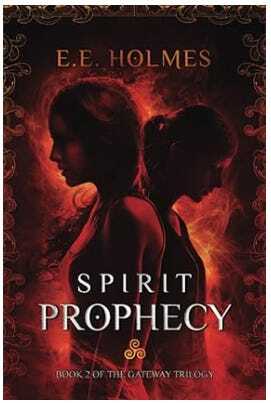
March 5, 2025
When I realized libertarians can relate better to Jess Ballard than Harry Potter

I can’t believe it’s been nearly 22 years since J.K. Rowling released Harry Potter and the Order of the Phoenix and I also can’t believe I didn’t become a libertarian right then and there. But then again, I was 12 years old and in the middle of government school “education,” even if I wasn’t that good at ‘playing school.’
But hey, in hindsight, everything worked itself out and that continues to be the case, as it does with a lot of people. Anyway, I went ahead and, like a contingent of those who the State raised via coercion, embraced left-wing leanings until my early twenties when I finally snapped out of it as an economics teacher dropped the term ‘Austrian School.’
Yet, I had the book right in front of me, along with an entire series that happens to criticize government intervention. My favorite series, no doubt.
The Libertarian Book Reviewer is a reader-supported publication. To receive new posts and support my work, consider becoming a free or paid subscriber.
Fast-forward to October 2020 when most of the world was still facing unlawful COVID restrictions, I wanted to read something paranormal. That brought me to the Gateway Trilogy and Jess Ballard. After blowing through Spirit Legacy, I read Spirit Prophecy for the first time, where Jess and her sister Hannah realized they were outcasts.
And while I saw the corruption in the system, thanks to an overreaching Council, I realized some of us in libertarian circles could relate to Jess. But it wasn’t until this most recent readthrough did I discover something else: libertarians could relate to her better than Harry during his fifth year at Hogwarts.
One group wants to imprison Jess, the other wants her deadOne of my favorite scenes in Spirit Prophecy contains a thriller element when some random dude follows her and Savannah (Savvy) through the streets of London. A dude who, even when a few Samaritans try to hold him up, refuses to end his pursuit.
But before things get out of hand, Finn, who followed Jess and Savvy from Fairhaven Hall, arrives and rescues them from this creep. Still, it wouldn’t be a good scene unless there was more action going on. And that’s when another vehicle pulls behind theirs.
It’s not long before the trio (four of them if you count their spirit guide, Milo) realize this latest pursuer wants to run them off the road. And here’s when things get good: Their pursuer, despite Milo’s best efforts to distract said pursuer, succeeds, sending their vehicle tumbling down a bank.
Thanks for reading The Libertarian Book Reviewer! This post is public so feel free to share it.
Jess, Finn, and Savvy all walk away from the wreck and are punished when they arrive back at Fairhaven. After she’s free to return to her dorm, Milo tells Jess he saw the driver, and it was none other than the last man who saw her former mentor, Dr. David Pierce, alive.
At this point, Jess comes to a strong realization: The Necromancers are indeed back, even if the Durupinen refuse to believe it.
Wanted by two powerful factions renders Jess a complete outcastThe Necromancers have one goal in mind: To reverse the Gateway, which is bad news for those spirits trapped in the aether, thanks to the Durupinen Leeching energy from them as they attempted to cross over. Leeching may have allowed the Durupinen to halt their own aging, something their Council was more than fine with, but the practice caused an even bigger problem.
Yep, the Necromancers have firepower at their disposal that makes it easy for them to carry out what they want. Plus, with some knowledge of the Isherwood Prophecy, which Jess and Hannah are the ultimate subjects of, getting rid of Jess would mean there’d be nobody capable of preventing what would be an outright catastrophe from occurring.
It’s bad enough that Jess and Hannah have paid for their mother’s mistakes, which they are blamed for even if they had nothing to do with them. And it gets even worse when over half the Council wants to see them jailed when it becomes clearer they’re the prophecy’s subjects.
In short, the Durupinen may have tried to thwart the prophecy, but their relentless lust for using a spirit’s aether to give them that supermodel look helped contribute to its fulfillment. Still, they’d rather keep looking like supermodels and throw a couple of teens in the dungeons than mull over how they could be responsible for seeing this debacle fulfilled.
Spirit Ascendency depicts Jess living a fugitive lifestyleIf you love books that contain thriller elements, Spirit Ascendency has plenty of it while Spirit Prophecy scratches the surface. And it drives home what I finally realized in Spirit Prophecy: That Jess is the true outlier here in a ‘world’ that features two major ideological factions. While there is a ‘lesser of the two evils,’ neither is particularly decent.
It’s something we’ve long seen in today’s world of politics, where it seems like both major sides of the political spectrum are so bent on disagreeing with one another, it’s almost like when one group takes a stance on an issue, the other group is bound to take the opposite stance. Or at least, that’s what it seems like.
These days, I’ve noticed that libertarians seem less like outcasts in the realm of mainstream politics, with some of Donald Trump’s moves at least looking okay on the surface - freezing USAID, freezing military aid to Ukraine, and… potentially setting the stage for leaving NATO?
But, the realization I came up with recently made Jess quite the relatable character she should’ve been back in 2020. Those of us who flat-out refused to follow any mandate or restriction weren’t always the most popular people at the grocery store. But hey, dirty looks where only one’s eyes are exposed have never hurt anyone, right?
Then, there’s the laundry list of other aspects others may not have taken the most kindly with, including, but not limited to:
Critique of Intel communities
Critique of government schools
Pushing for sound currency
Pushing for pardons of people like Ross Ulbricht
Critique of programs like social security
One could go on and on here, but you get the gist. That said, Jess Ballard, pursued by multiple powerful factions, probably would’ve fit, at more of a thriller-level pace, in with libertarians when it became clearer that she was a threat to the establishment of both.
